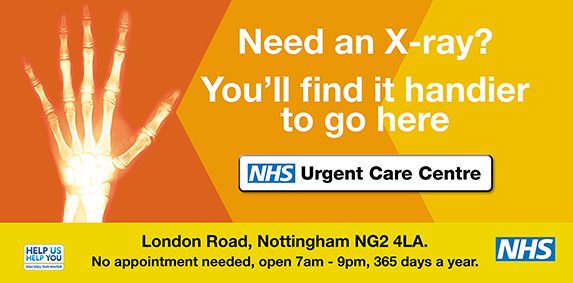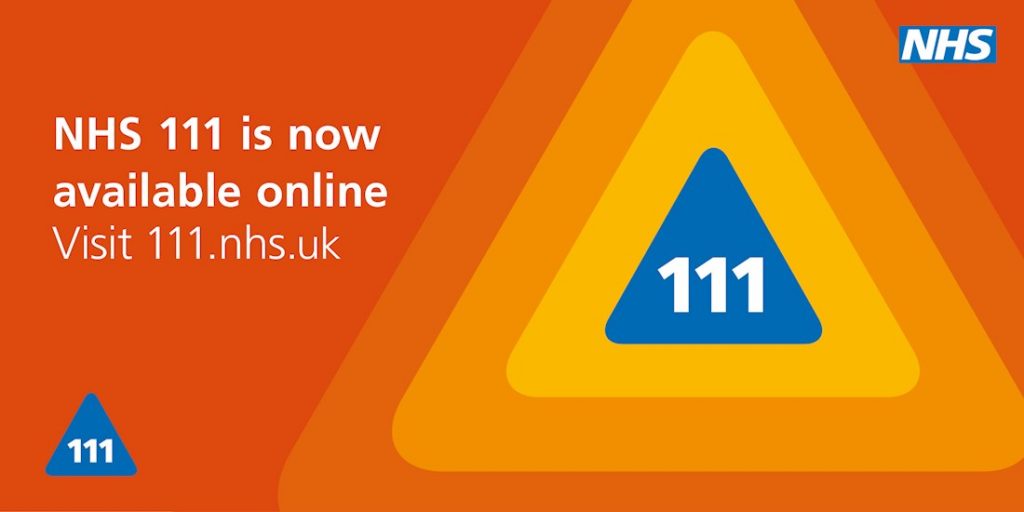In a life-threatening emergency always call 999 if someone is seriously ill or injured, and their life is at risk.
Examples of medical emergencies include (but are not limited to):
- Chest Pain
- difficulty in breathing
- unconsciousness
- severe loss of blood
- severe burns or scalds
- choking
- fitting or concussion
- drowning
- severe allergic reactions
For non-life threatening situations get immediate help with minor illnesses and injuries:
Click on the below for advice from NHS Choices
Pharmacists can also advise on minor illnesses and injuries.
Alternatively you can find an urgent care service:

Did you know that the Urgent Care Centre on London Road has X-
- They can treat minor injuries and illnesses including minor burns, minor head injuries or suspected broken bones.
- They can x-ray children over 5 and provide simple fracture management, meaning you don’t have to go to A and E.
- They can also now see the under 2’s and are open 7 days a week, 365 days a year from 7am-9pm and you don’t need an appointment!
Speak to someone now or when we are closed – call 111
111 is the NHS non-emergency number. It’s fast, easy and free. Call 111 and speak to a highly trained adviser, supported by healthcare professionals.
They will ask you a series of questions to assess your symptoms and immediately direct you to the best medical care for you.
NHS 111 is available 24 hours a day, 365 days a year. Calls are free from landlines and mobile phones.
You can also access 111 online by clicking on the image below:
Please consider using one of the alternatives above before visiting A&E.
When to go to A&E (Accident and Emergency)
An A&E department (also known as emergency department or casualty) deals with genuine life-threatening emergencies, such as:
- loss of consciousness
- acute confused state and fits that are not stopping
- persistent, severe chest pain
- breathing difficulties
- severe bleeding that cannot be stopped
- severe allergic reactions
- severe burns or scalds
Dental Emergencies
You should see your dentist for regular check ups; also, there is an out-of-hours emergency dental service available to you once you have registered.
Click on this link for how to access a dentist in an emergency. Dental problems should be treated by dentists, not by doctors. Dentists can prescribe antibiotics and painkillers just as doctors do. People not registered with a dentist or just visiting locally can consult any dentist for advice.
If you have difficulty finding a dentist please click on this link. If you or your child has a tooth knocked out, carefully pick up the tooth but do not attempt to wash or clean it. Put it straight into a little cold milk and take it with the patient to the dentist.
